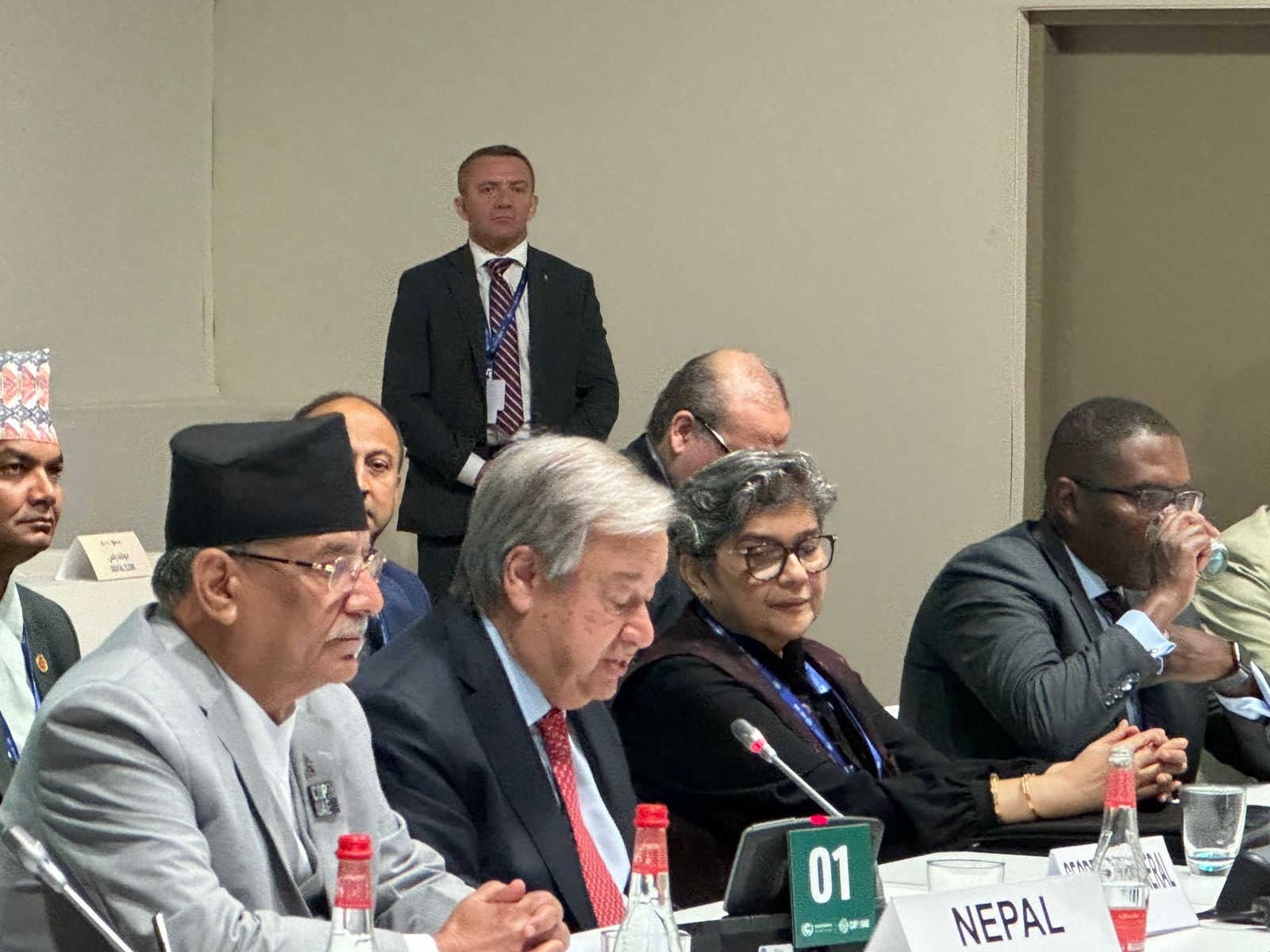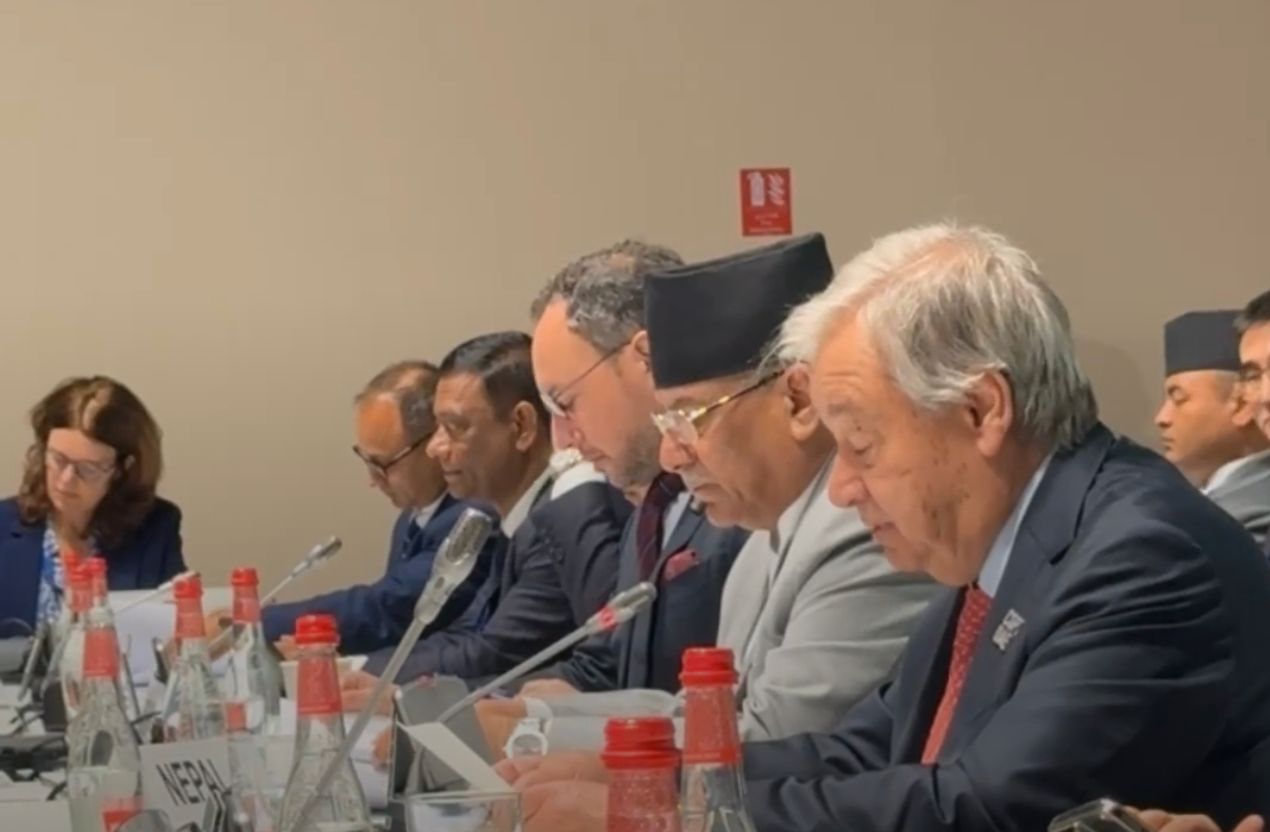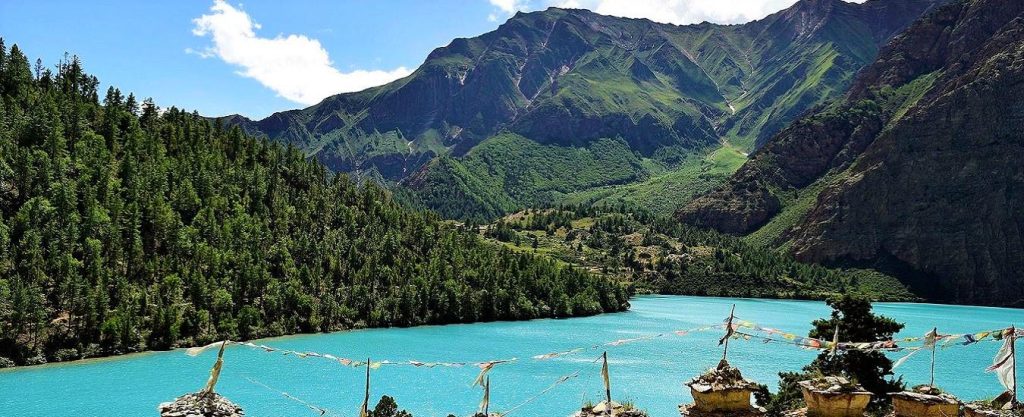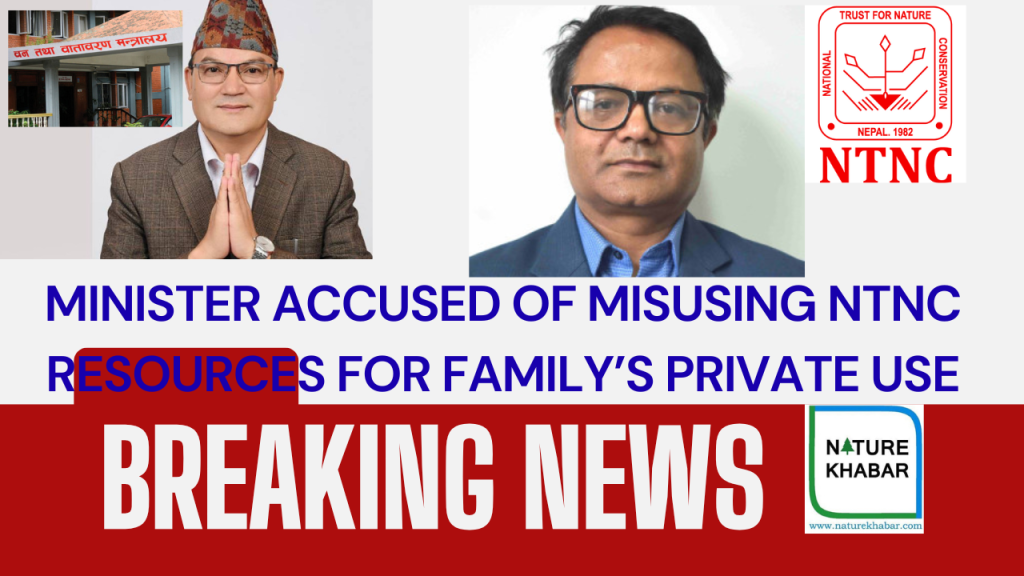Guterres to attend COP28 meeting with heads of states of mountain countries
- Nature Khabar

UN Secretary-General Antonio Guterres will attend a high-level roundtable with heads of states of mountain countries on December 2.
Guterres will join Pushpa Kamal Dahal, the Prime Minister of Nepal, and heads of state and delegations including Xavier Espot Zamora, the Prime Minister of Andorra, Zheenbek Kulubaev, the Minister of Foreign Affairs of the Kyrgyz Republic, and Uros Vajgl, the State Secretary of Slovenia.
The roundtable follows Guterres' recent visit to the Himalayas, where the cascading impacts of climate change threaten a quarter of the world’s population, as well as the recognition given to mountains in the COP28 President’s Opening Plenary, which mandated the issue be taken up under the Nairobi work programme.
The roundtable also follows the International Centre for Integrated Mountain Development’s (ICIMOD) submission to Friday evening’s high level event on the Warsaw International Mechanism on Loss and Damage convened by UNFCCC Adaptation Division. Izabella Koziell, ICIMOD Deputy Director General, will state the urgent imperative to prioritize the Hindu Kush Himalaya for Loss and Damage compensation. Koziell will argue for a rapid scaling up of funding to understand rapid and slow onset events, to help the vast population sizes exposed to these events (240 million in the mountains and a billion downstream) adapt, and to compensate communities for losses and damages.
At the Government of Nepal event on Saturday, Koziell will present the most up-to-date research on the impacts of cryosphere change on the Himalaya region, linking to ICIMOD’s report which found glaciers in the region could lose up to 80% of their current volume by the end of the century.
“Mountain regions are highly sensitive to environmental change,” says Koziell. “The Himalayan glaciers in the 2010s melted 65 per cent faster than the previous decade, which is generating cascading climate risks. Disasters are increasing in frequency and intensity across the region, and communities, particularly the most vulnerable, are struggling to cope with the onslaught of droughts, floods, and extreme weather. These hazards are also wiping out investments in infrastructure - including hydropower and roads.
“The pace of climate change across the Himalayan mountain range is generating enormous economic losses. Those most impacted but least to blame must be compensated, and leaders gathered in COP28 must make emergency emissions reductions now to avert even more catastrophic impacts in this, one of the world’s most populated zones.”

Delegates will also hear from Pam Pearson, Director of the International Climate Cryosphere Initiative (ICCI), on its 2023 State of the Cryosphere report. The report shows that all the Earth’s frozen parts will experience irreversible damage at just 2°C of global warming. "Remaining within 1.5°C is the only way to prevent an accelerating chain of catastrophic events, economic loss and growing political instability”, says Pearson.
“2023 has been a year of climate disasters and ice loss, which has underlined the urgent need for global leaders to recognise that two degrees is too high for Earth’s cryosphere,” concluded Pam Pearson, Director of ICCI. “Today’s landmark report shows that we need to take 2°C off the table.”




Feedback